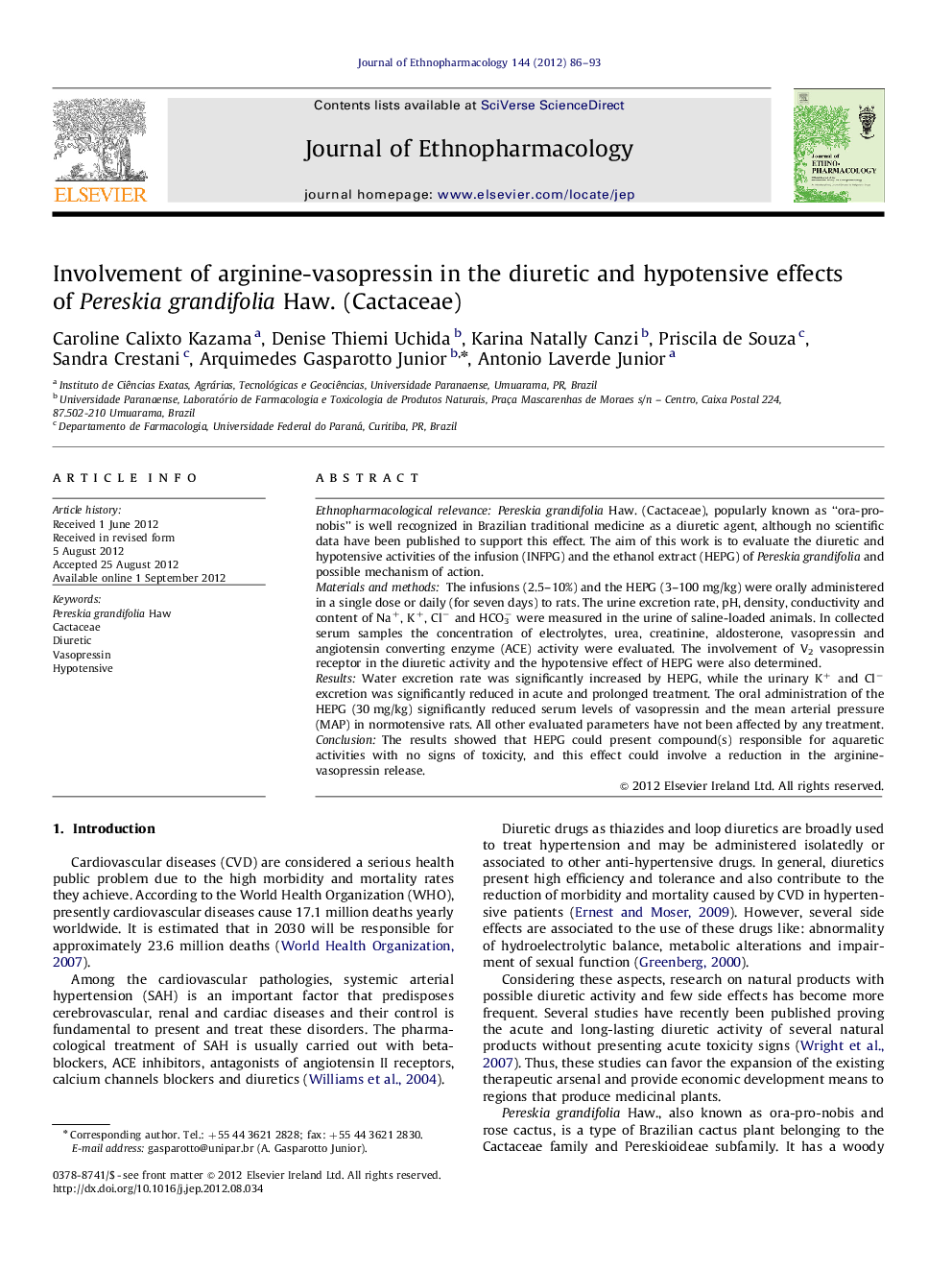| Article ID | Journal | Published Year | Pages | File Type |
|---|---|---|---|---|
| 2545560 | Journal of Ethnopharmacology | 2012 | 8 Pages |
Ethnopharmacological relevancePereskia grandifolia Haw. (Cactaceae), popularly known as “ora-pro-nobis” is well recognized in Brazilian traditional medicine as a diuretic agent, although no scientific data have been published to support this effect. The aim of this work is to evaluate the diuretic and hypotensive activities of the infusion (INFPG) and the ethanol extract (HEPG) of Pereskia grandifolia and possible mechanism of action.Materials and methodsThe infusions (2.5–10%) and the HEPG (3–100 mg/kg) were orally administered in a single dose or daily (for seven days) to rats. The urine excretion rate, pH, density, conductivity and content of Na+, K+, Cl− and HCO3− were measured in the urine of saline-loaded animals. In collected serum samples the concentration of electrolytes, urea, creatinine, aldosterone, vasopressin and angiotensin converting enzyme (ACE) activity were evaluated. The involvement of V2 vasopressin receptor in the diuretic activity and the hypotensive effect of HEPG were also determined.ResultsWater excretion rate was significantly increased by HEPG, while the urinary K+ and Cl− excretion was significantly reduced in acute and prolonged treatment. The oral administration of the HEPG (30 mg/kg) significantly reduced serum levels of vasopressin and the mean arterial pressure (MAP) in normotensive rats. All other evaluated parameters have not been affected by any treatment.ConclusionThe results showed that HEPG could present compound(s) responsible for aquaretic activities with no signs of toxicity, and this effect could involve a reduction in the arginine-vasopressin release.
graphical abstractFigure optionsDownload full-size imageDownload high-quality image (146 K)Download as PowerPoint slide
